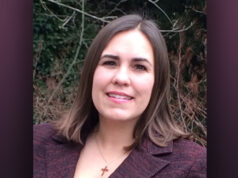It’s a scary and deeply personal thing families deal with when a senior loved one needs to transition to an assisted living community. It’s also scary just to turn 65 and have to sign up for Medicare. The underlying question: will they be taken care of, “can I trust you with the care of my loved one?” This follows through with selecting a power of attorney, the person who will become your advocate, who will have the ability to do pretty much anything financially on your behalf. Kelley Smith at CarePartners Senior Living joins Suzanne to talk about the various responsibilities that come with accepting a role as power of attorney. There are two types: medical and financial. Kelley strongly recommends that if mom has more than one child, she shouldn’t give both roles to the same child.
Medical power of attorney is the person who’s called when mom is in the hospital, who will make medical decisions for care at an assisted living community.
Financial power of attorney goes to the person who, while mom is in the hospital, will make sure that all of her bills are paid. They’re accountable to the state as well as other siblings. Kelley and Suzanne share advice for financial powers of attorney – the first is to be transparent about how money is being spent.
Kelley and Suzanne remind everyone that you should talk to an elder law attorney or an estate planning attorney about getting paperwork filled out.













